Book now to arrange a private tour of the School
Tomorrow’s Climate Scientists
Welcome to the page dedicated to our School’s Royal Society Projects.
These projects aim to give children across the UK not just a voice, but an opportunity to take action themselves to address climate and biodiversity issues – to become the climate scientists of tomorrow.

Project 2022
Our project’s question:
‘How can a star 150 million kilometres away help us to create a pollinator garden?’
Please enjoy our project’s launch film:
Our project film:
Huge thanks, as always, to our STEM partner Dr Teresa Penfield, Project Manager at the John Innes Centre, for her help and support throughout both of our projects. Please visit: Dr Teresa Penfield: ‘Creating a learning habitat for the climate scientists of tomorrow’ to read Dr Teresa Penfield’s blog on this year’s project.
Project 2021
Across the ages, our pupils will be participating in an inter-disciplinary experiment that will investigate our project’s question:
‘How is crop productivity influenced by Nitrogen Dioxide pollution from cars and natural climate variables in and around our school?’
Please enjoy our project’s launch film:
The experiment:
- Pupils will map the school grounds and mark multiple ‘control variable’ sites for placing diffusion tubes to measure Nitrogen Dioxide in the air. A more rural off school ‘control’ site will be identified. Tubes purchased from an accredited laboratory (Gradko International Ltd) will be placed for a period of up to 4 weeks before being returned to the lab for analysing.
- Pupils will survey cars driving into school on at least three different days, collecting data on vehicle fuel types and idling times.
- Pupils will identify 4 or 5 sites in our school grounds for growing groups of plants (such as beans or radishes). The same group will also be planted at the more rural ‘control’ site out of school (and hopefully a local school situated on a busy city junction).
- Pupils will tend to plants as they grow, collecting data including: temperature, humidity, light, soil quality, rainfall, growth, insect life and mass of any crops at each site.
- Using gathered data, pupils will compare outcomes from each site, look for patterns and draw conclusions in an attempt to answer our climate research question.
Our STEM partners:
We are delighted to introduce our two STEM partners, Dr Teresa Penfield and Dr Leo Alexandre, who will be guiding and advising our children as the project progresses:
We are also delighted to be collaborating with The Wherry School on this project and look forward to working together closely in the coming months:
We will be plotting the progress of the project on this page and uploading images, analysis and short films to document our experiment and our findings. We hope you enjoy following our Royal society journey!
Our project begins….
February, 2021:
Year 1 made their own rain gauges and positioned them around the School. In this short clip, two children explain what a rain gauge is and what they measure:
March, 2021:
Year 1 planting beans:
April, 2021:
Join a team of Year 8 children as they canvass our Prep pupils’ and teachers’ views on three key project questions:
1. What do you think a plant needs to grow?
2. What do you think might prevent a plant from growing well?
3. What climate variables do you think might influence crop growth?
Our Nursery children prepare the trug on the Pre Prep playground!
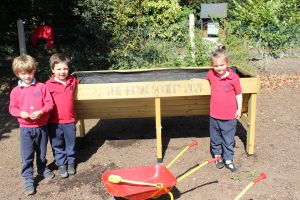
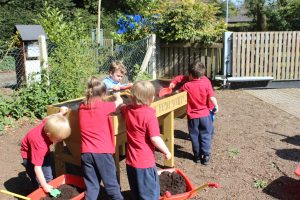

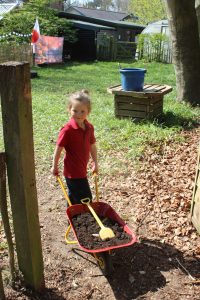
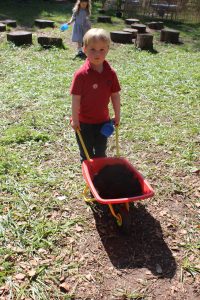
Our Year 1 children prepare the trug near the Newmarket Road entrance:
Our Year 2 children find a way to water the trugs and question what plants need to grow:
Our Year 1 children check on the beans in the Project’s polytunnel:
One of our STEM partners, Dr Alexandre teaches us about fair testing and randomising our bean plants:
May, 2021
Jessica in Year 2 and her brother, William in Reception carry out some planting in the trug at our rural ‘control’ site on their family’s farm in Norfolk.
Year 5 randomising the bean plants under the guidance of our STEM partner, Dr Alexandre:
Reception visit the Newmarket Road trug to measure the beans’ growth:
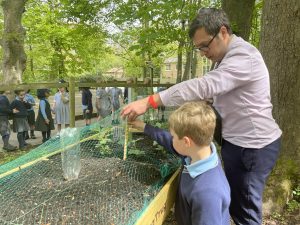
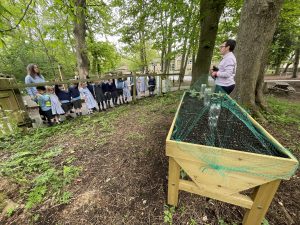
One of our STEM partners, Dr Teresa Penfield from the John Innes Centre, visits the School and our three growing sites:
July, 2021
We were delighted to take part in this experiment and are pleased to share what we discovered:
To read the Blog from our STEM partner, the John Innes Centre, please visit: https://www.jic.ac.uk/blog/developing-our-future-climate-scientists/
